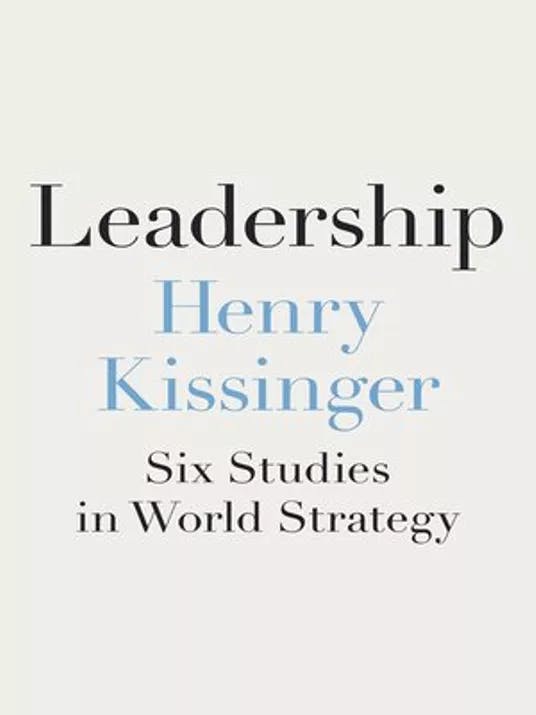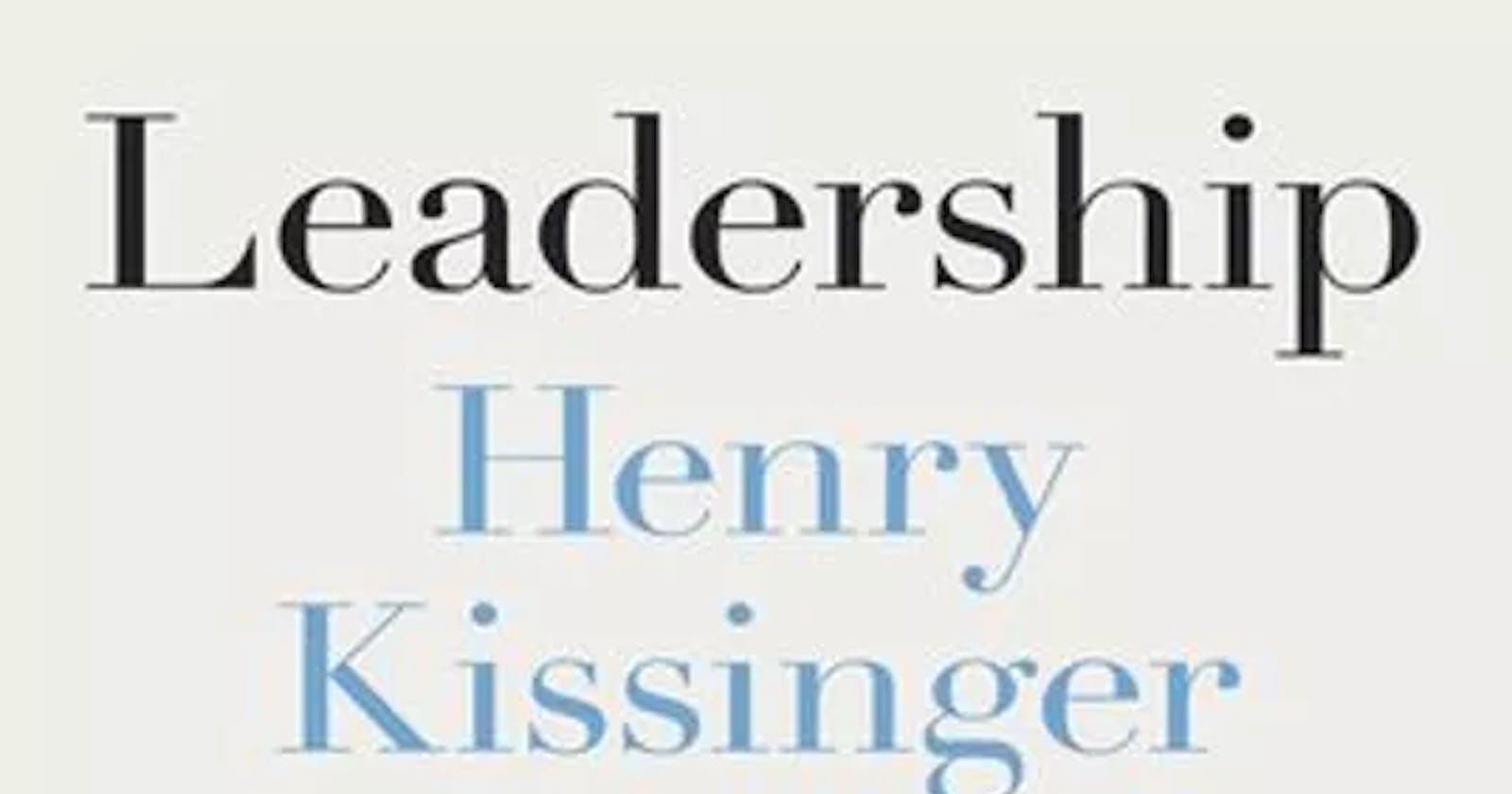Leadership: Six Studies in World Strategy
Books on foreign policy, statecraft and geopolitics

Henry Kissinger, consummate diplomat and statesman, examines the strategies of six great twentieth-century figures and brings to life a unifying theory of leadership and diplomacy.
"Leaders," writes Henry Kissinger in this compelling book, "think and act at the intersection of two axes: the first, between the past and the future; the second, between the abiding values and aspirations of those they lead. They must balance what they know, which is necessarily drawn from the past, with what they intuit about the future, which is inherently conjectural and uncertain. It is this intuitive grasp of direction that enables leaders to set objectives and lay down a strategy."
In Leadership, Kissinger analyses the lives of 6 extraordinary leaders through the distinctive strategies of statecraft, which he believes they embodied.
After the Second World War,
Konrad Adenauerbrought defeated and morally bankrupt Germany back into the community of nations by what Kissinger calls "the strategy of humility."Charles de Gaulleset France beside the victorious Allies and renewed its historic grandeur by "the strategy of will."During the Cold War,
Richard Nixongave geostrategic advantage to the United States by "the strategy of equilibrium."After 25 years of conflict,
Anwar Sadatbrought a vision of peace to the Middle East by a "strategy of transcendence."Against the odds,
Lee Kuan Yewcreated a powerhouse city-state, Singapore, by "the strategy of excellence."And though Britain was known as "the sick man of Europe" when
Margaret Thatchercame to power, she renewed her country's morale and international position by "the strategy of conviction."
